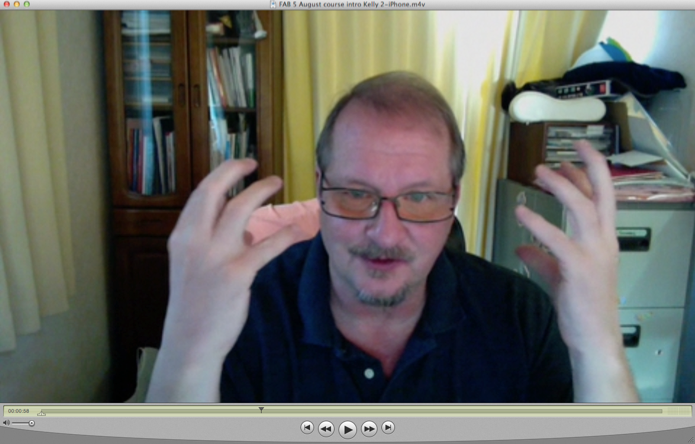This month, let’s look at these two theories, Constructive Episodic Simulation Theory by Schacter and Embodied Simulating by Bergen. These are the two theories I based my FAB 5 presentation on. The first is a theory that we use episodic memory to simulate our personal futures. The second is that we use this same machinery to process meaning. On hearing a phrase we simulate the same situation in our sensory cortices. To understand these fascinating theories, do this:
Click to watch this video:
Read my KoTESOL proceedings paper:
Understanding Language Learning by Looking at Faulty Memory
Read, skim or view: Schacter’s American Psychologist article
Adaptive Constructive Processes and the Future of Memory
Option: watch his lecture on Junko Omotedani’s presentation post in the FAB5 forum.
Listen, read or skim: Bergen’s Brain Science Podcast Interview at
http://brainsciencepodcast.com/bsp/2013/2/24/how-the-brain-makes-meaning-bsp-94
(PDF Transcript attached)
Answer these questions in the forum:
How has your view of memory changed since reading these materials?
How has your view of language processing changed since reading these materials?
Think of as many implications either of these theories has in regard to language teaching as you can.
For example, “Since memory is so faulty, we shouldn’t make listening comprehension questions that focus on detail, such as “How many people were at the party? a) 36 b) 38, c) 40”
Finally, does this bring to mind any maxims? Can you make any new ones that fit?
Course author, Curtis Kelly
From Robert:
This content is the main focus for August. Spend about 70% of your learning time here and the other 30% discussing other topics on the FAB5 forum. Remember, that "cross-training" and "following your passions" is fantastic for building feelings of autonomy, mastery, and a sense of purpose. So make sure you follow your passions on the forum, while helping others out. Most importantly, let's have fun!
